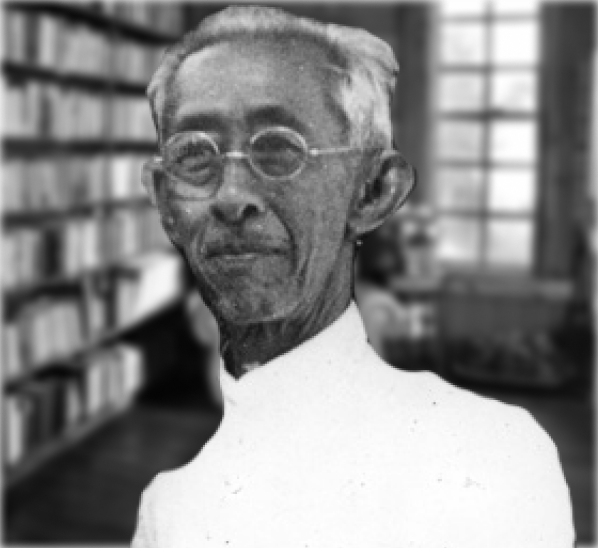Progress in all countries, particularly the less developed, depends substantially upon examples set by traditional leaders; unless they show the way, change by ordinary farmers becomes doubly difficult. So often in Asia hereditary elite are content with the old order or simply leave the land to join the new urbanites. Mom Chao SITHIPORN, instead, chose to leave high position, devoting his life and fortune to introducing agricultural methods new to the then Kingdom of Siam.
A grandson of King Mongkut and nephew of King Chulalongkorn, Mom Chao SITHIPORN grew up at a time when these vigorous monarchs were opening Thailand to foreign contact. Sent to England for schooling, he studied engineering. Upon return to Bangkok he first engaged in private business and later joined the civil service, rising in 13 years to the highest rank.
To relieve the routine of his official position he began to study agriculture. Increasingly convinced that other crops than rice should be encouraged, he decided to engage in farming. Also, he had married a noble lady reared in the Royal Household and felt her frail health could only be remedied by life in the open. Family opposition was overcome when his cousin, King Vajiravadh, gave the couple permission to leave and make their own life.
At Bangberd, some 400 kilometers south of Bangkok, Mom Chao SITHIPORN in 1921 acquired 40 hectares of uncultivated upland and set out to prove with scientific management that a farm could be both a place to produce and to live. Contouring, terracing, and green manuring of fields and interplanting of crops were first seen in Thailand on his farm. Watermelons, flue-cured Virginia tobacco and improved corn — now Thailand’s third largest export — were among the new crops he promoted, demonstrating use of fertilizer and insecticides. The earliest Thai advocate of diversified farming, he was the first to breed and sell purebred swine and, with imported strains of high-yielding layers, to set up a commercial poultry operation. In his garden were vegetables uncommon to his country. His wife applied modern methods of preserving food. On no Thai farm before had records and cost accounts been kept. Experimenting with Thailand’s first tractor and many other laborsaving devices, he was his own mechanic.
Educator and researcher more than simple farmer, he helped neighbors follow his practices and offered his seeds. Young agriculturists in government became his ardent admirers. To share more widely his findings he founded Kasikorn, still the only agricultural journal in Thailand. Associates in this venture were graduates of the College of Agriculture at Los Banos in the Philippines.
Recalled to Bangkok in 1932, Mom Chao SITHIPORN served briefly as Director General of the Department of Agriculture. A lasting contribution was establishment of the first three upland experiment stations. Deposed by the coup d’etat ending absolute monarchy and imprisoned as a Royalist, he was incarcerated mainly on Taratao Island for 11 years. For fellow inmates he gave lectures on upland farming which were later incorporated in a book. Released near the end of World War II, he was elected to Parliament from his home province and served as Minister of Agriculture for a short period until he was again deposed by a coup. A notable achievement was his vigorous attack on rinderpest. As head of the Thai delegation, he was elected Chairman of the FAO Rice Commission for three successive sessions.
His fortune exhausted but his spirit unbroken, Mom Chao SITHIPORN and his wife returned to reopen their Bangberd farm. Finding it more than they could manage, it was sold in 1960 and a two hectare plot purchased near Hua Hin. There the Prince continues to grow vegetables, grapes and other fruits. Now 84 years of age, he maintains an active correspondence with agriculturists. In articles to newspapers, he vigorously defends the interests of Thai farmers, critically challenging government policies with the pragmatism of a man who knows the soil.
In accepting the 1967 Ramon Magsaysay Award for Public Service, I cannot find words to express adequately the sense of appreciation and gratification that I feel on being so highly honored; this feeling of gratification is accompanied by surprise and astonishment that the Board of Trustees should have delved so diligently into my past and the work that I began so long ago, when the Chairman of the Board was still a small boy and the Executive Trustee had not even been born. So it is with profound emotion that I ask the Board of Trustees of the Ramon Magsaysay Award Foundation to accept my grateful and sincere thanks for the high honor bestowed upon me, thanks not only on my own behalf, but on behalf of my descendants who will always feel proud that their ancestor was an Awardee of the Foundation.
However, I must emphasize that my work would have been of little use if it had not been carried on so well by my colleagues and associates, who like many others after them were alumni of the College of Agriculture at Los Banos, and I feel happy that I have lived long enough to see that the educational ties started a half century ago, which have been so beneficial to the agriculture of my country, have ripened into the friendship now firmly established between the Republic of the Philippines and Thailand.
On this day, the 60th anniversary of the birth of the late President Ramon Magsaysay, may I have the privilege of saying some words, which I hope will help in a small way to keep alive the “spirit of Magsaysay,” his dedication to improving the lot of the common man.
Specifically, I would like to speak of the millions who form the vast majority in our part of the world, namely the farmers, the humble tillers of the soil, whose welfare Ramon Magsaysay had so much at heart.

